Sometimes things go wrong. This time it was us, a very good friend of mine and me. It started at 3 o’clock in the morning and honestly, I haven’t got a clue why things always have to go wrong at 3 o’clock in the morning.
At the time a lot of newspapers printed the story, one example here: https://www.ouest-france.fr/bretagne/douarnenez-29100/une-goelette-sechoue-sur-le-flimiou-lundi-matin-1275921
Simultaneously something else happened with the newspaper-articles and the video: many in Brittany heard about our mishap and an unbelievable amount of people came to help us. To bring us things they found on a beach somewhere and they suspected it could belong to us. To give us a hand. To offer us the use of their workshops and materials for free. They invited us to come to their homes for a meal, a shower or to wash our clothes. A spin around to see something else from time to time. Transport to the supermarket. A trip to the dump to get rid of our messed up oil-waste. And one couple even came over asking us to accept the key of their appartment for us to use as they would go away to the Cote d’Azur for the next 6 months.
But what has actually happened?
We were on our return-journey from Ireland and UK back to Nazaré/Portugal. On the way up we had spent the winter in Camaret-sur-Mer and explored Brittany only by rental-car as it’s often a little rough for winter-sailing in this corner. Now it was still summer and we could go places by boat. Alec had built the Whirled here, launched her in Paimpol and spent several years sailing her in this area. She was built from the plans of George Buehler, an American Yachtdesigner specialized in classic designs, it’s a Melquiades 50.
Without ever having met in person I became writing-pal with George, one would say friends if it wasn’t for the fact that we never met. Unfortunately he passed away. His wife and his second mate sent me an email at the time, but I was so shocked and speechless, not knowing what to say to people who seemed soooo lovely from his description but my damn past kicked in and I was suddenly scared of people again. So I never wrote back and it has become much worse for me to try now. However, they were possibly most disappointed by not hearing from me, so there is no more plans of the Melquiades 50 to have. Instead there is plans for the 50′ Gulnar’e Heavy Duty Schooner available: https://georgebuehler.com/50-gulnare/ which is identical to the Melquiades. I’m working on a plan how possibly to apologize, but still haven’t managed to find the words. It’s not forgotten, it’s hunting me really enough.
Our plan was to go through the Raz de Sein, which is a fairly narrow passage between rocks and reefs in the south of Brittany instead of taking the long way around the Ar Men lighthouse, and head to La Rochelle to catch up with my parents. Although we had more than plenty of time to get there when we went up anchor in Plougonvelin, we were slower than expected and the tide changed halfway through the passage (for non-sailors: this means the current turns against you, and depending on how strong, you might even go backwards). So, we turned around and sailed to Douarnenez instead.
The bay to the east of the port was far too crowded for our taste, so we were on the lookout for a different spot to anchor. Coming in we both had noticed the nice little bay between Île Tristan and the port, so that’s where we went to have a closer look. As always some circles with the depthsounder, we found a spot we liked and dropped the hook.


My parents had only been waiting for us, so they moved up the coast to meet us in Douarnenez and continued on their way home after a nice day and evening together.
However, this meant we could cross Biscay straight to Galicia/Spain instead of doing the detour via La Rochelle. As every day and always, a dinghy-ride into town to download the latest weather-forecasts.
They came up with a storm over Biscay, sending strong South-Westerlies in our direction. We were very sheltered from South-Westerly winds in our little bay. Under different circumstances we would have gotten the 180 KG shipsanchor out of the Cargo-Hold, but with so much protection around we only deployed the little admirals-anchor as an extra precaution. Just for peace of mind.
We were sleeping in the forecabin. Especially on a steel-boat, whatever your anchor-chain does, you hear it. And you hear when your anchor drags. Instantly.
Well, this night we didn’t hear a thing. Only, we felt something is different. We both woke up at the same moment. Something is wrong! We didn’t even bother looking but jumped in our clothes and gear as fast as we could. Alec was the first up the ladder, opened the hatch and I can still hear him saying “Oh F**k!” and me seeing the rocks towering over us from down below.
Alec dashed in the engine-room to handstart both the 18-HP-Lister-engine and the donkey engine for the hydraulic windlass, while I prepared the windlass and everything else to go up anchor and see if we can free ourselves – we still hadn’t touched any rocks.
I got the main-anchor up. I had tried, but there was no way to improve the situation. Alec was trying hard at the helm, but the only thing he managed was to turn the ship the other way around. And the line of the little admirals-anchor was tangled up somewhere I couldn’t reach, gggrrrrrrrr!!! Then we hit the rocks the first time. It’s an ugly sound I can tell you, and the vibration goes through the whole ship and your own body. You can really feel how your ship is suffering.
The waves were smaller than me, maybe only 1.30 m or even less, but they were quite powerful and tried to throw us higher on the rocks with each wave. Till we hit bottom. That is, actually, not a flat bottom but several rocks of roughly the same height.
Our good ship Whirled was trapped. She couldn’t move any further to Starboard (for non-sailors: that’s the right side of a ship). The only thing the waves could do now was to lift and drop her, or, and that got really bad, roll her from one side to the other. The wave and the water with it would disappear, so she would fall over to Port (that’s the other side, the left one). The next wave would turn up, push her up from underneath and smash her to Starboard.
Now this might sound pretty funny, but the forces involved in this were brutal. Whatever we were trying to do, in these moments we had to hold on fast for dear life, hoping not to be catapulted off the ship.
In between these violent movements we tried to lash down what had come loose, when Alec suddenly said to me “Dody, I think it’s time, could you call a MAYDAY?”
Ignoring the mess l found going on in the aftcabin I turned the VHF on, Channel 16, and for the first time in my life I actually called a MAYDAY (I didn’t have a license for VHF at the time, but roughly knew the procedure). The reply from Cross Corsen (the French Rescue-Service) came instantly.
Of course they needed a proper position with Latitude and Longtitude, “Rochers de Filimou” was not enough even when they are only maybe 50 m long. I got my own little handheld GPS from the wheelhouse, turned it on, but of course he couldn’t find a position inside the cabin with a steel-roof and the antenna-cable unplugged. Alec’s GPS, installed but also a handheld was old generation and finally, after about 20 minutes would spit out a fix. It would have been much faster to use the paper-chart, but this thing was buried somewhere in the mess on the floor.
They said something super-important to me: don your life-jackets! Of course, with all the things that kept us busy, we had completely forgotten about them!
Meanwhile I started preparing our grab-bag (for non-sailors: that’s the one, hopefully watertight, where you chuck in the most important bits like your passport, credit-cards, other documents as well as computer, camera, mobile phones whatever, and don’t forget the chargers. Basically the essentials you would like not to have to replace. If you’re far from the shore you need more grab-bags with survival-stuff like additional food, flares, protective clothing and such, but some of these you should have ready to go anytime anyways).
I had given Cross Corsen my mobile phone number and they kept calling me on the phone instead of the VHF. My phone was running out of battery and of credit as I didn’t have the hindsight to get me a French card this time. Needless to say: I bought a handheld VHF first thing after our MAYDAY.
And then came Penn Sardin, the Lifeboat. They tried what they could to pull us off, but the tide had gone down too far to make it possible, we had to wait for the next highwater.
We were ordered to abandon ship. Hang on a minute, no, we don’t want to! They said right now they couldn’t do any more and it was getting dangerous for them (which was true), so they had to leave. If we wouldn’t come off the ship with them now, there would be nothing they could do to help us if the situation deteriorates. They promised they would come back tomorrow to give it another try.
This made sense to us, so we agreed with a heavy heart. But now came the scary bit: how to get off the boat?
They came over with a powerful inflatable, had her in forward gear pushing against the hull and we were meant to jump into the inflatable. We had to get the timing right with the waves and Alec wasn’t very lucky with it. Never mind, we made it. Meanwhile the inflatable was full of water and we were all wet to the bones.
Once this was done, getting onto Penn Sardin (the lifeboat) was easy. They took us into the port of Treboul, which lies on the other side of Île Tristan and is where the lifeboat is stationed.

A tiny bit of paperwork with the lifeboat-guys and the Gendarmes (Police). And then “can we help you, do you need anything? A hot shower, a bed – the Townhall will pay a hotel for you”. What we really wanted was to be close to our ship. By now it was around 05:00 in the morning, there wouldn’t be any light before 06:30 or so and to get the first bit of a chance to get her off wouldn’t be before 08:00 according to our tide-tables. A hot tea would be great! And a freshly baked baguette! At what time would the first Boulangerie be open here? One of the Gendarmes was convinced the first one would open right now. Hop in the car, we’ll drive you up there! – But, we’re dripping wet!!! – No worries, just get in the car, it’s alright!
Ha, hang on, stop, let me give you my phone-number in case you need anything or change your mind about the hotel – so they all gave us their phone-numbers the Gendarmes included and off we went to the Boulangerie. The owner was looking a bit terrified when he saw 2 dripping wet people stepping out of a police-car in the middle of the night, still wearing their life-jackets and entering his shop, but he was cool about it and within no time we had a hot cup of tea in front us and were munching away on a crunchy, warm and delicious baguette.
We noticed the first change of color in the sky, promising daylight not being that far away, so off we went down to the Rocks of Filimou where our poor Whirled got pounded by the waves. A little crowd of curious and concerned people had already started to form, watching the ship. Only then did I realize that the movement from side to side not only felt brutal, the looks of it from the shore also was brutal.
When the tide came up a bit more, the waves managed to lift her up from time to time and then drop her down again. What we were standing on was something like a breakwater, and the whole ground was shaking every time she dropped back down on the rocks. Alec rescued the outboard, hoping to get it working again, but it was a hairy bit of operation.
I think it was some time short past 8 that I called the Lifeboat guys to let them know it’s getting there. Short after Penn Sardin came around the corner. They attached a tow-line and with the 4th or 5th try she came free.

Now, first a diver had to go down to check for leaks. Of course they didn’t want to have a ship sinking anywhere. But, to everyone’s surprise, there were no leaks. They took her abreast and moved her over to the Port where we were finally allowed to go back on board.
We checked for leaks from inside, but all seemed good. She had taken on some water through the vents but that was all, no problem with the hull.
The cabin was the only real mess. The floor was covered in a mixture of photos, charts, olive-oil, juice, bedding, tins of food, fruits and whatnot.

Luck would have it that anywhere else our stuff stayed in place. Even our new (secondhand) Airstart Boudouin Engine with 75 HP in perfect condition which we had bought for the price of scrapmetal in Camaret-sur-Mer on the way up to replace the good old 18 HP Lister, was exactly where we had tied her down in the Cargo-Hold.
Now came the tricky bit. We wanted to go on the slip in the inner port to check what’s going on under water with our ship. But: as Alec didn’t have 3rd party insurance, the harbourmaster didn’t want to allow us in. For non-sailors: in Europe 3rd party insurance is mandatory for pleasure-craft. The UK didn’t have this rule, which always made it a bit tricky if we wanted to enter a port. In general we preferred anchoring anyways, so it never really came up as a problem. But in this case it did.
We found a solution: I’ve got 3rd party and full insurance for Tonga, and I remembered receiving a letter from my insurance-company some time ago informing me that my own 3rd party insurance would be extended to any uninsured vessel I was the Skipper of. I called them and they sent me a confirmation by email. Philippe, the harbourmaster, was happy with this solution and we had permission to go on the slip.
We had broken our steering-gear in the accident
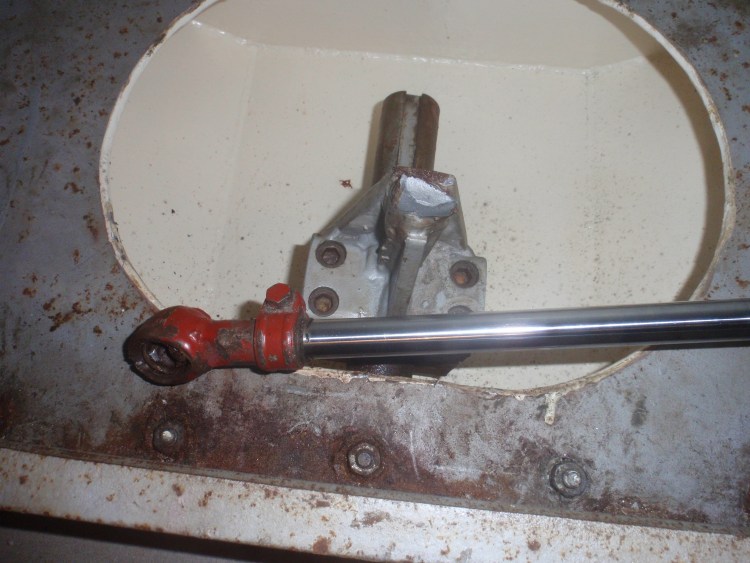
so asked a tug to get us in.
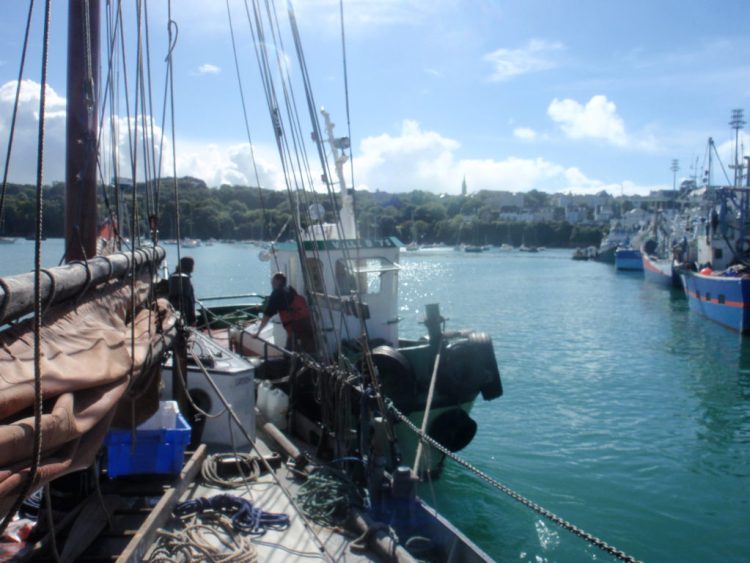
Now it was waiting for the tide to go down. We were super-curious about what we might find once we can see her below the waterline. And this is what we found (hovering over the photos gives info about the thickness of the steel when the boat was built):
The Cargo-Hold of the Whirled is not only for storage, but also a fully equipped workshop. We assessed the damage. Welding new bottom-plates in between tides could or could not work. As the steel itself was still in reasonable condition we decided to leave it be for the moment and do it with the next haulout (for non-sailors: that’s when a boat goes in a boatyard on land). A lot of other things had to be addressed before we could continue our voyage.
One priority was the steering. Alec was carrying 2 spare hydraulic rams with him, as he wanted to replace the current ram for a double-system one day.
It took us around 6 weeks to roughly patch her up. Yes, we could have spent months here to do it perfect, but Tonga desperately needed my attention and help.
We had lost the engine-cover of the outboard and couldn’t find a replacement, but we got the engine going again. The Crappeau, our Dinghy (350 KG by the way) got a bit smashed up, but nothing a little bit of Epoxy and glass couldn’t fix

We had left some scars on the rocks.
And there should also be some photos of Douarnenez in this post I think!
Once we had the important bits under control it was stocking up with provisions and water and wait for the right forecast to cross the Bay of Biscay.
It was November by now, officially winter in the North Atlantic Ocean which means that commercial ships have to sail under different loadlines and weatherforecasts are not reliable for a longer period in advance.
We were as ready as the circumstances would permit, going into town 3 times a day to get our new forecasts. Forecasts for the whole North Atlantic coz that’s where the low-pressure systems come from before they hit Biscay.
Finally a constellation turned up where we thought we would have a good chance for a fairly acceptable crossing. We crosschecked the next morning and it still looked promising. So, we cast off the lines and headed out to sea.
The Whirled doesn’t have SSB (Single-Side-Band radio, something that works over huge distances and allows sailors to receive weather forecasts, communicate with the outside world and, in case one is equipped with a pactor-modem even to send and receive emails and grib-files for weather prediction). As soon as we were further than 30 Miles off the coast there would be no updates on the weather for us, and we had about 450 Miles to go. I simply used the Grib-Files I had downloaded the day of our departure, constantly compared them (nearly every hour) with our actual weather conditions including the barometric pressure etc. to find out where on the weatherchart/Grib Files we are and adjusted our course accordingly. This worked pretty well.
Yes, it wasn’t a straight course across, but we managed to sneak around any nasty stuff, had a really nice sail all the way and after 4 days and 1 hour we had tied up in Ribadeo on the border to Asturias in Galicia/Spain.
Seriously, next time you cross Biscay, do yourself the favor of heading towards this area. It completely took my breath away to see the Picos de Europs after more than 3 days at sea, the tops snowcapped, below rich green pastures and – in the case of Ribadeo – completely protected inland-water with tiny islands, but shallow for us. It was a sight I will never forget :-D!
Like everybody else in this situation we’ve been doing some thinking and talking about our mishap. Especially about the question why we didn’t hear or feel the anchor slipping (for non-sailors: when you’re living on your boat and next to always on your own anchor instead of going into a Marina, you instantly notice the slightest changes, even in your sleep). Later the locals told us that with a South-Westerly wind in Biscay the waves come into the huge horseshoe-bay of Douarnenez swirl around and double-reflect in this tiny little bay we were anchored in. This double-reflection causes the sand to loosen up and the holding gets suddenly very poor. At the time I didn’t find this info in the Bloc Marine and later I didn’t check other Pilot-Books about it.
A really stupid thing was, that we completely forgot about the lifejackets and I’m happy Cross Corsen reminded us.
Concerning the mobile phone: it was great that I could simultaneously get on with my tasks and the Contact with Cross Corsen as the Whirled only has a fixed VHF, and nowadays roaming within Europe is without extra costs. Still, in a rescue-situation other possible helpers are entirely cut off from the conversation and batteries on a mobile phone in operation usually don’t last as long as the ones in a handheld VHF. As I said above: the moment the Whirled was on the slip I went straight into the next shop to get me a handheld VHF, watertight and floatable, downloaded the form and had it registered with Tonga.
Steelboats: I must say I am impressed about the pounding she was able to withstand. Of course with a lot of dents. But as long as these dents don’t get pinched the ocean stays outside. I have seen Fibreglass-Boats completely smashed to pieces in far lesser circumstances, and although wood has a certain natural flexibility it is not capable to withstand a treatment like this for such a long time.
There will be more about the voyage with the Whirled in a later post.
Always fair winds, Dody
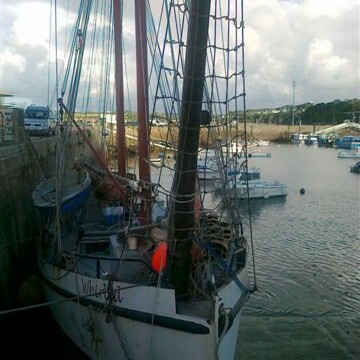
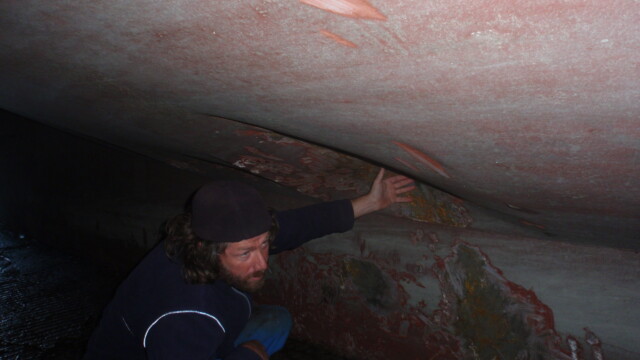
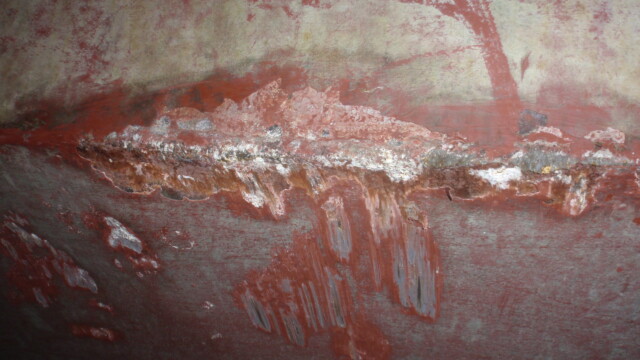
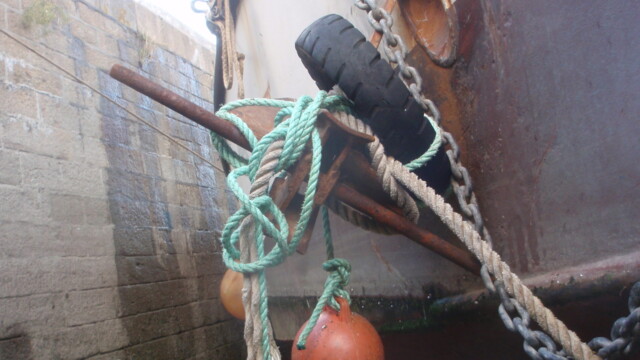
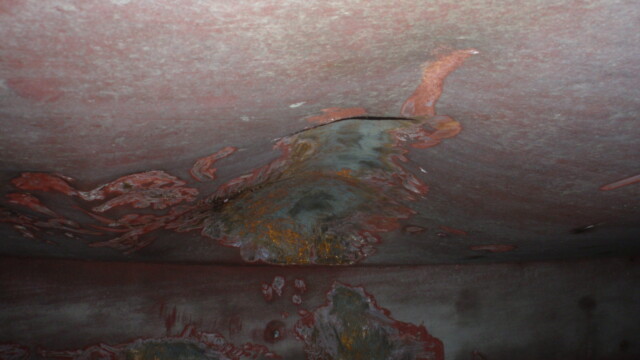
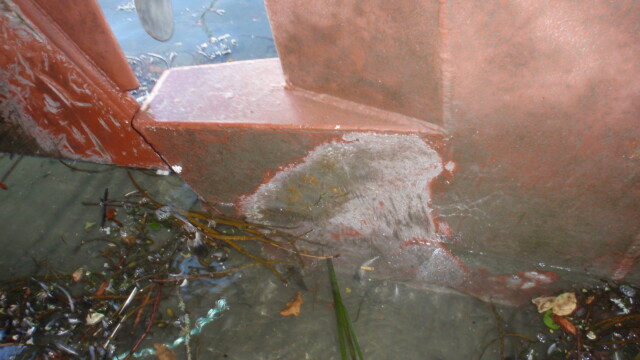
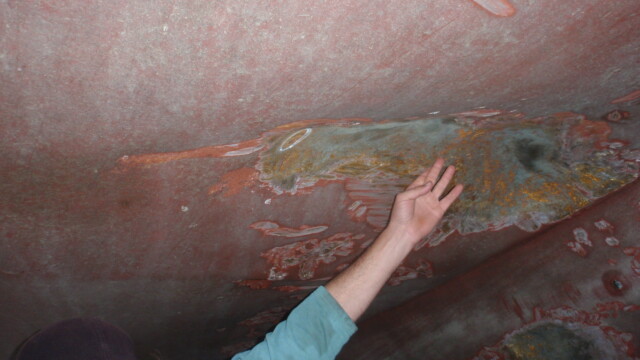
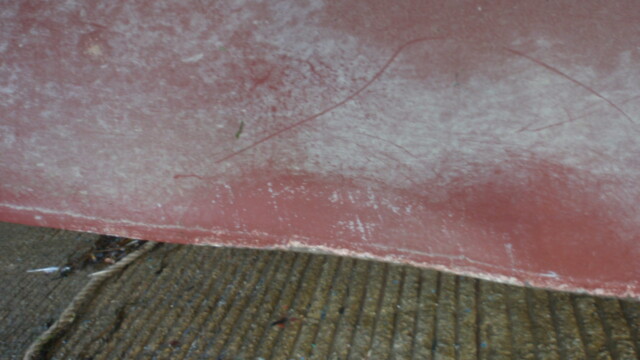


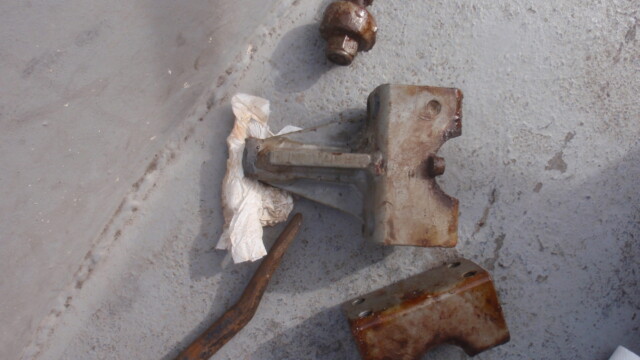
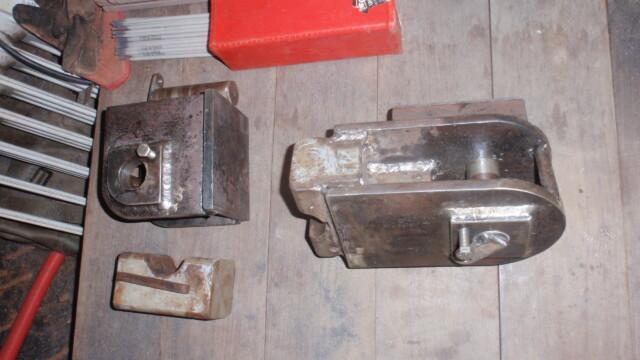
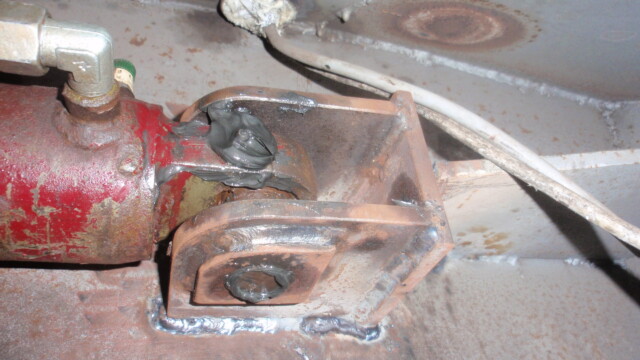
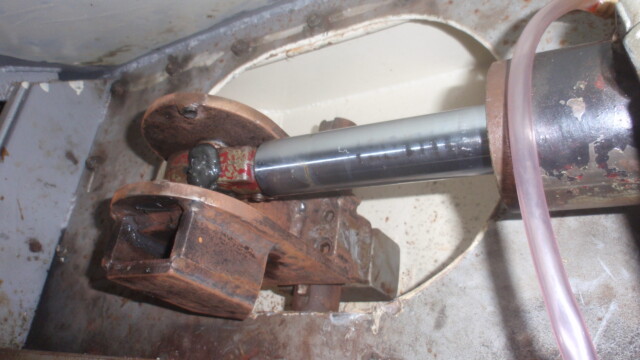
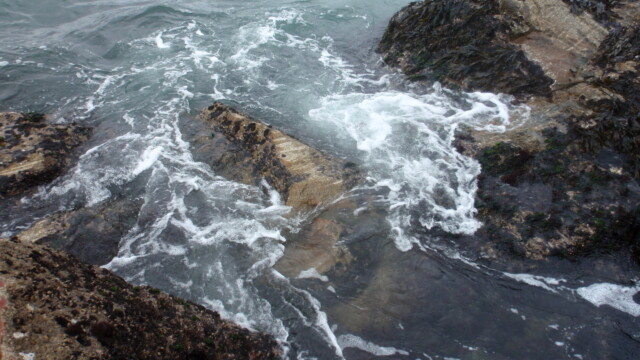
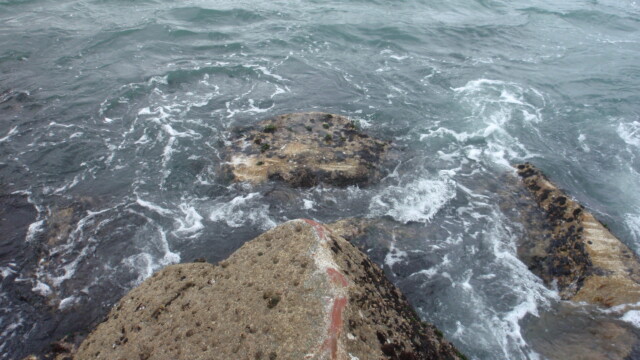
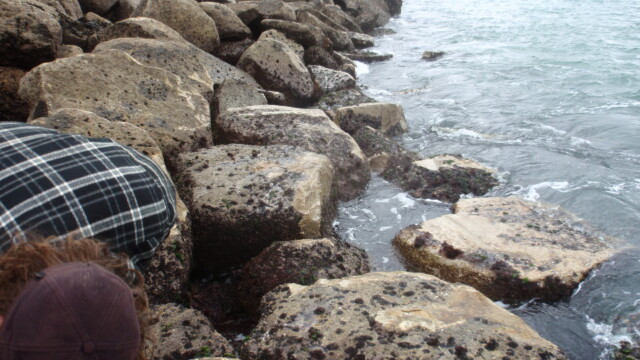
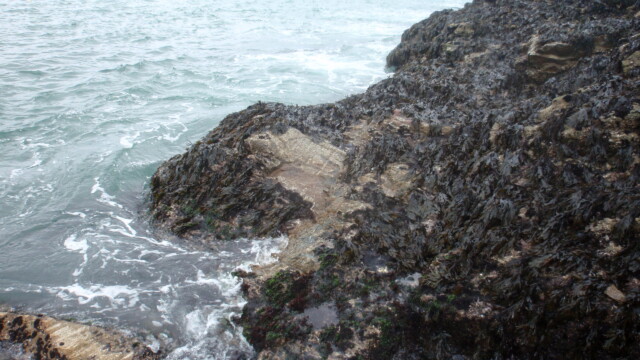
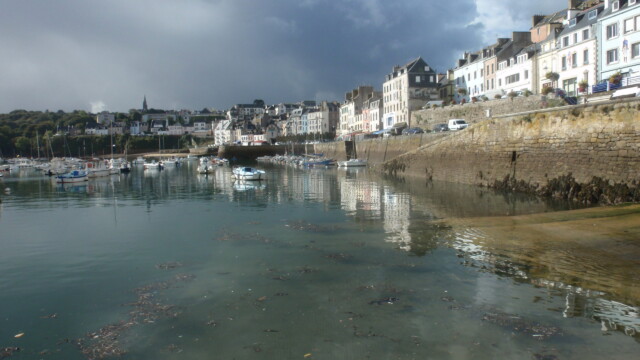
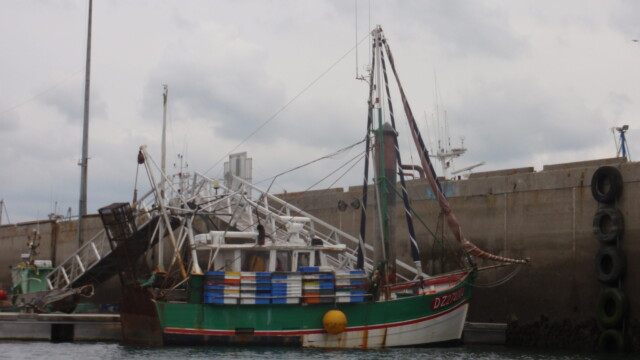
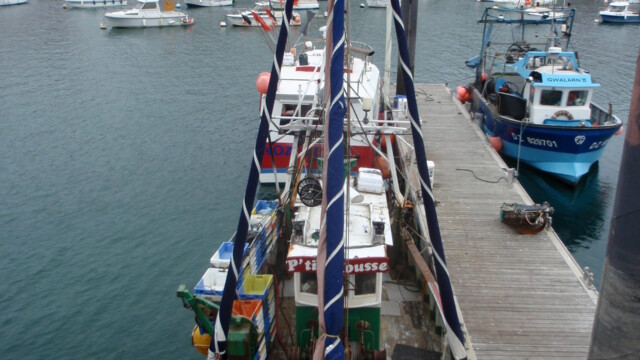
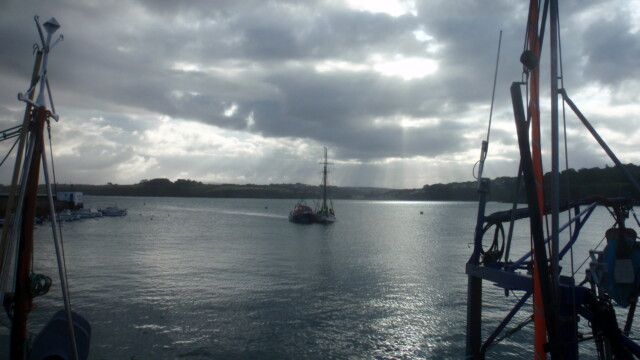
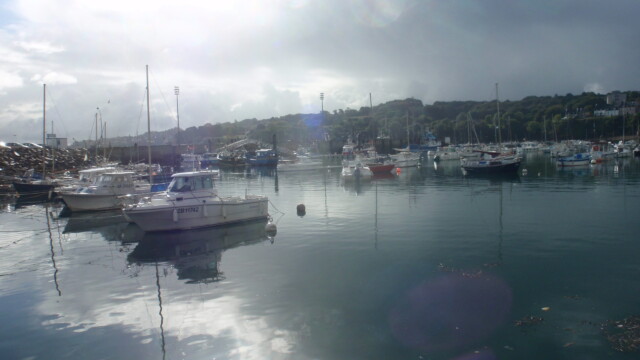
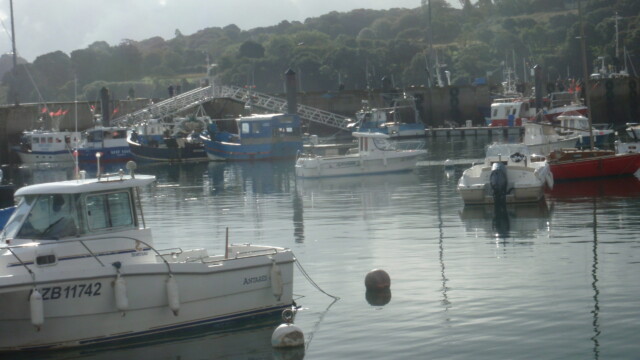
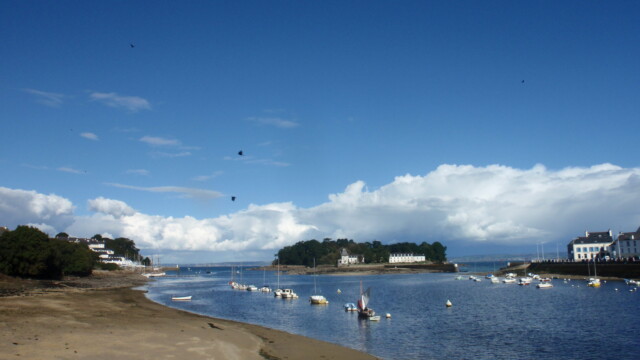
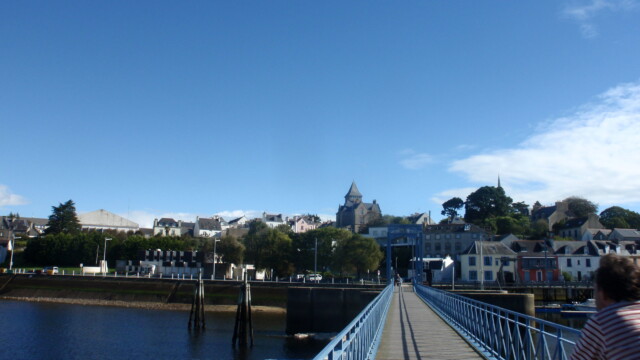
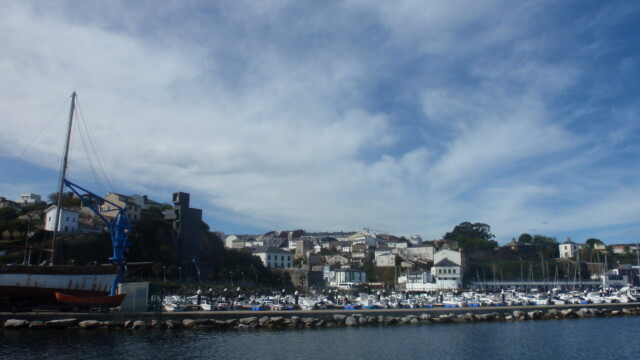
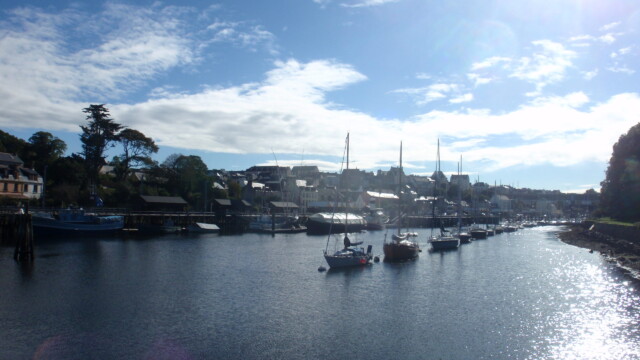
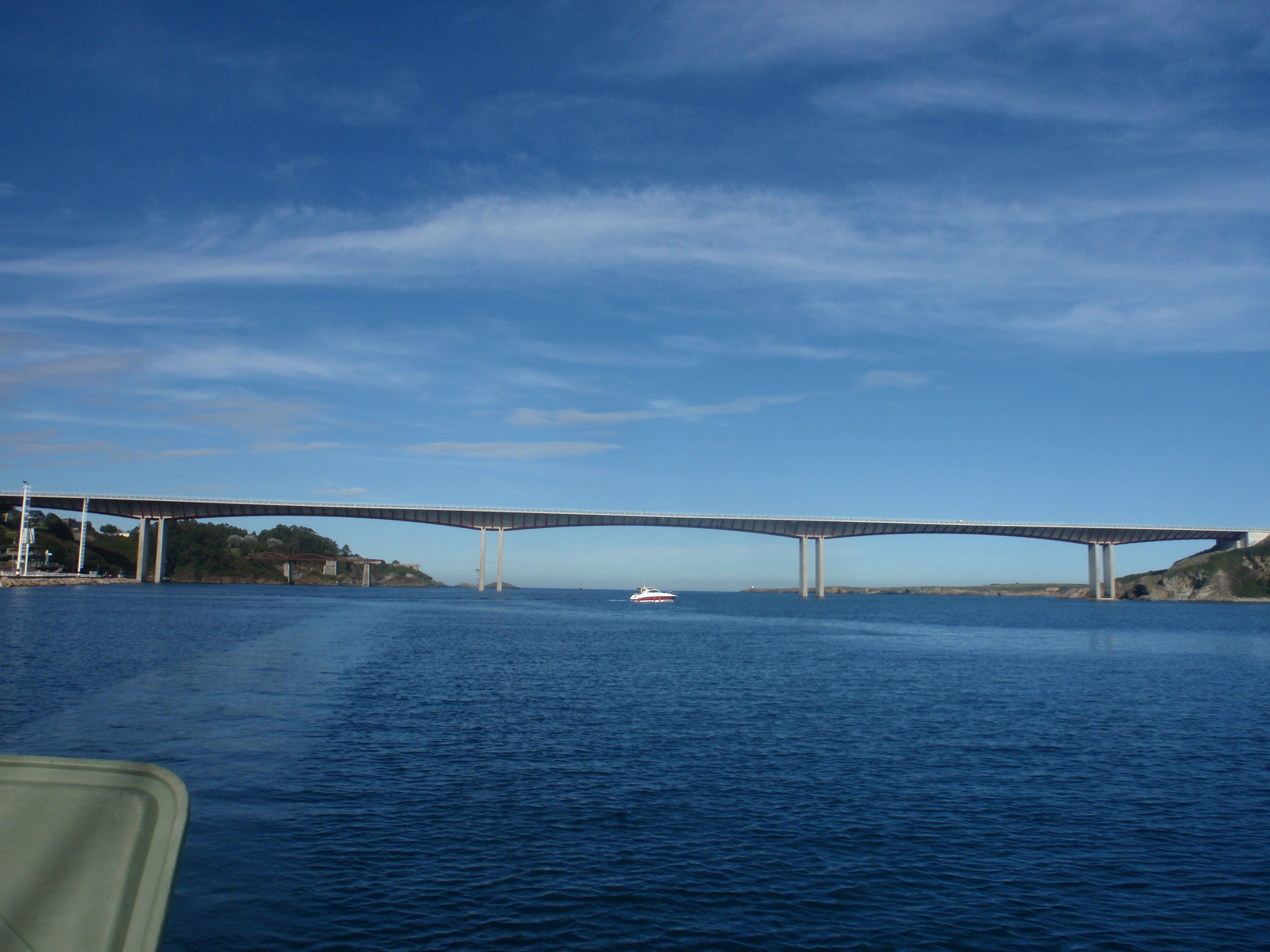



4 Comments
Ed · 01/05/2021 at 12:16
Oh Dody, what a yarn! Took me a while to read it.
Do you still not know what it was that woke you both?
Quick sand to anchor in sounds fun.
What an experience, what a lot of lessons shared?
Great story.
Dody · 01/05/2021 at 18:57
Thanks Ed :-D! And no, I still don’t know, only that we were instantly feeling something was wrong. The instance anchors loose their holding-power the boat changes direction either caused by wind, current or waves. I guess this is what we could feel, coz there was absolutely no noise from the chain. Fair winds Dody
Helene J. Van Haasen · 08/03/2020 at 21:40
Sailing Portugese waters I skipped: read it already 😉
But this story was so ‘spannend’. Really what an experience!
Dody · 08/03/2020 at 23:19
Of course you skipped it, you were the lovely friend who translated the original into your own language for me, why should you read it again? Thanks Helene, happy you enjoyed it :-D!